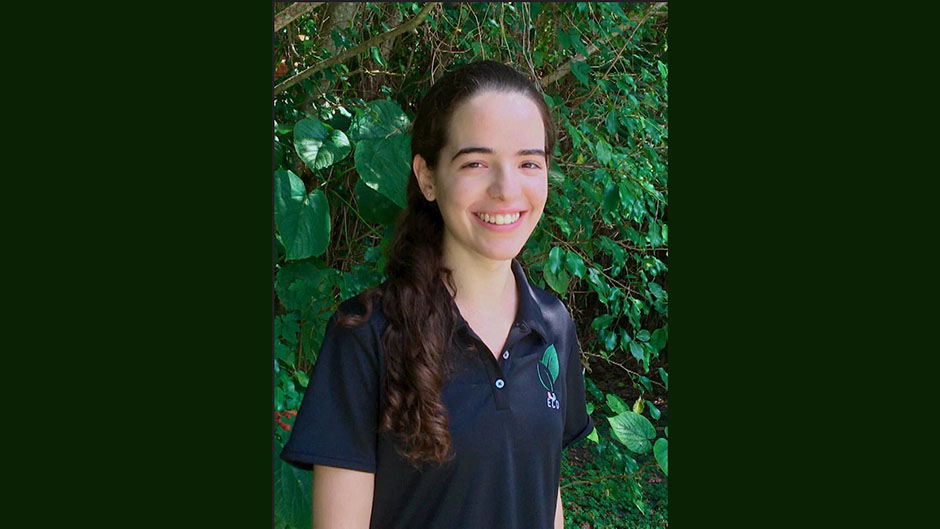Julie Topf is excited to start her senior year at the University of Miami. Although all of her classes this fall will be virtual, she remains hopeful that her final year will be her most memorable.
“It’s hard to know what to anticipate this year, because there are still so many unknowns about what is going to happen,” said Topf. “I am staying optimistic and hope that it will be safe enough for everyone to go back to campus in the spring, which will be my final semester at UM. Virtually or not, I’m planning to make the best of whatever my final year at UM ends up looking like.”
Born and raised in Miami, Topf has a double major in ecosystem science and policy and Spanish with minors in climate science and policy and geography. “Even though my major was undeclared when I first started as a freshman, I immediately knew that UM was the right school for me, especially when I came across the Abess Center for Ecosystem Science and Policy, where I take the majority of my classes,” she adds.
With a passion for sustainability issues and the environment, Topf found her calling when she joined the ECO Agency in her sophomore year. An umbrella organization under UM’s Student Government, the ECO Agency promotes sustainable initiatives. As chair of facilities on the ECO board, Topf is making her mark by observing campus life and creating new ideas and projects to make the University greener.
“ECO gave me the freedom to explore environmental issues on campus and improve the overall student experience through those initiatives,” said Topf, who is supervising the completion of projects begun by other students who have graduated.
Among the initiatives is a project to have instructors on the Coral Gables and Rosenstiel School campuses transition to refillable dry-erase markers made from recycled plastic—a move that Topf said would help reduce plastic waste, departmental supply costs, and virus contagion. So far, she has conducted a faculty survey and found vendors who can supply the reusable markers to all departments.
During the summer, Topf worked virtually with Jose Cardoso da Silva, professor and chair of the Department of Geography and Regional Studies, on a study addressing conservation and development. Published in Environmental Conservation, their paper outlines an agenda for the global conservation movement and a framework that emphasizes the importance of ecological infrastructure for the long-term wellbeing of societies.
For Topf, working with Cardoso da Silva on this topic brought her full circle. She first realized she wanted to pursue sustainability initiatives after taking his sustainable development class during her first semester at UM. She is grateful he gave her the opportunity to officially become a published author as an undergraduate.
For his part, Cardoso da Silva is confident Topf is destined to become one of the future global leaders of the sustainable development movement. “During the summer, Julie worked countless hours polishing concepts and ideas to get the paper completed. Now, we are working together on a new paper about development in the Amazon,” he said. “One of the reasons that I came back to academic life after 14 years working on global conservation was to prepare the new generation of future global leaders, like Julie.”
Topf said she intends to live up to her mentor’s expectations. “I really want to make a difference and will dedicate my life to do so,” she said.

